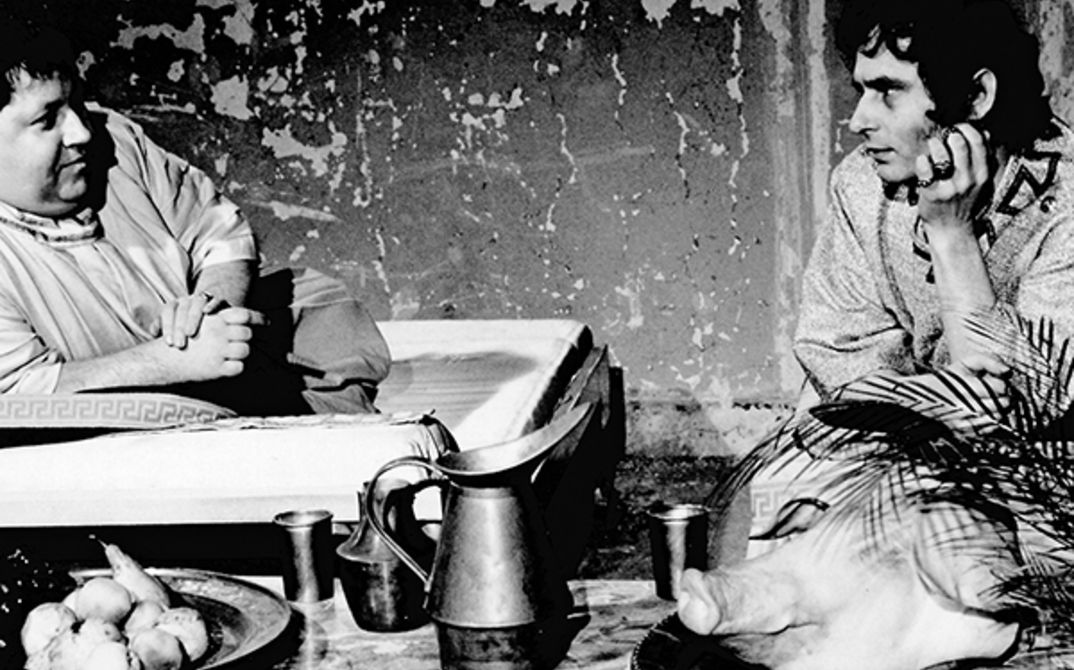64 min. German.
Over the course of 15 teaching units, the Marxist vocabulary for commodity and work, wage and labour power, exchange value and use value is thought about via images. The vignettes are captivating in their directness. What they drive at is always unequivocal, as they not only invoke political concepts with precision, but also bring together cinematic modes of thinking that are the equivalent of these concepts: Political position and aesthetic form merge; the didactic procedure leads to a dialectical form, which is expressed in visual montages, camera pans, the division of the image space, the adoption of a perspective. It seems only logical that towards the end, the format of the educational film disappears and the piece takes on the feel of narrative genre cinema: “The intention is to make a person who is walking think about walking so that he falls down.” (Bitomsky and Farocki) (ab)
Hartmut Bitomsky was born in Bremen in 1942. In 1962, he began studying theatre studies, German studies, and journalism at the Free University of Berlin. In 1966, he transferred to the German Film and Television Academy Berlin (DFFB), from which he was expelled two years later, along with other fellow students, for political activities. Starting in 1970, Bitomsky worked freelance as a writer, director and producer. From 1974 to 1985, he was an editor of the magazine Filmkritik. His cinematic oeuvre consisted primarily of documentaries and essay films. Bitomsky has also worked as a lecturer at art and film schools since the early 1990s. He was dean of the School of Film/Video at the California Institute of the Arts, Los Angeles, before taking up a professorship at the Berlin University of the Arts in 2005. From 2006 to 2009, he was director of the DFFB.
Harun Farocki was born in Nový Jičín, current Czech Republic. From 1966 to 1968, he studied at the German Film and Television Academy Berlin. He directed more than a hundred films for television and cinema. From 1974 to 1984, Farocki was an editor and author of the magazine Filmkritik. Starting in 1996, his films and installations were shown in a large number of solo and group exhibitions in museums and galleries. From 2004 to 2011, he was professor for film and art at the Academy of Fine Arts Vienna. Farocki died in 2014.
